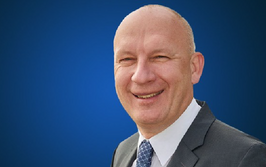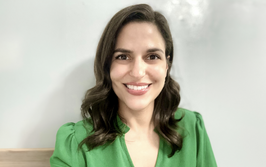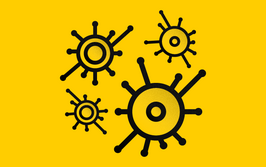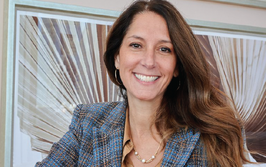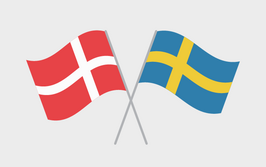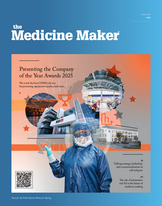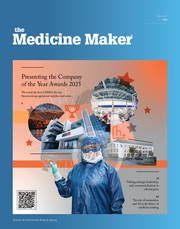Doyenne of Discovery
Sitting Down With... Ann Hayes, Owner, The Ann Hayes Consultancy, Stevenage, UK.
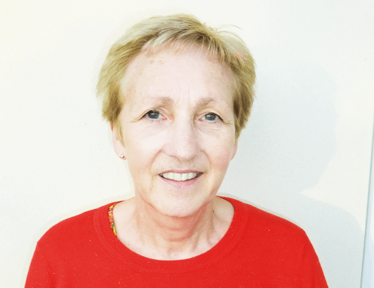
How did you get into science – and drug discovery?
I always wanted to be a scientist. Ever since I can remember, I’ve been interested in learning about the world around us and finding out something that people didn’t know before. After obtaining a PhD in pharmacology, I felt there were two paths in front of me if I wanted to continue my research: academia or the pharma industry. And I opted to go into the pharma industry. Today, I don’t work in the lab anymore – and haven’t done for quite some time – but I still love looking at and analyzing scientific data when I can.
What I really like about drug discovery is the chance to start from the patient and work from there. You start off by thinking about the patients, the disease and the medical needs, before you even start coming up with molecular targets. I’ve always found it very rewarding because, if successful, I felt I could make a real difference to patients.
You have a long history in big pharma...
That’s right. I worked at Glaxo and then GlaxoWellcome for 22 years, eventually becoming Director of Drug Discovery. Most of my time was spent in central nervous system (CNS) drug discovery (neurology, psychiatry and pain), and I was working at Glaxo in Pharmacology when two major first-in-class drugs were discovered – one for migraine and one for chemotherapy induced emesis. It’s just so exciting to be involved when a treatment becomes available where there wasn’t one before. Imigran is a great example; there really was no good treatment for migraine before it. Doing clinical trials in migraine can be a challenge given the size of the placebo response, but I remember talking to the team leader, Pat Humphrey, who said he knew it was going to work even after the first two or three patients. We used to hear stories from the commercial team about how much patients appreciated the drug and how much it changed their lives. It gave us a real boost.
How do you feel about the negative press coverage of pharma R&D?
Sometimes it seems as though the press only report negative stories about big pharma, but many of these companies really do some amazing work, especially in research and drug development. Think of how much has changed in just 15 years. We’ve seen some phenomenal new drugs in multiple sclerosis and we have a cure for Hepatitis C. I also heard a heartwarming story from an oncology clinician at an advisory board meeting. Every day, the oncologist has to pass through the rheumatoid arthritis (RA) clinic to reach his own. Ten years ago, he said, the RA clinic was full of wheelchairs, but today, there are no wheelchairs at all – mainly the result of life-changing new drugs like TNF inhibitors. It’s good to hear such clear success stories from time to time; it’s easy to forget how far we’ve come.
What challenges face modern drug discovery?
For certain diseases, we still don’t know enough about etiology or pathophysiology to easily validate targets. And, of course, animal models often don’t translate well into humans.
The other big challenge is finding a molecule that can be used as a drug – there is a laundry list of requirements to be met. Beyond simply interacting with the target, it must be potent, selective, and reach the right site of action in the body. Ideally, it’s got to be cheap to make, easy to formulate, and not have too many side effects... Then you’ve got to take it though toxicology, scale-up synthesis, clinical trials, and so on. I don’t work in big pharma any more, but I still get a buzz when I hear about successes, particularly in CNS, because there are so few new drugs in that area.
Has all the low-hanging fruit gone?
There is certainly an element of truth in that. A lot of the diseases with unmet needs today are chronic, so pretty much by definition you’re talking about extensive clinical trials. You’ve got to show that your drug is better than what is already out there. You can’t just take somebody with epilepsy or diabetes off their existing medication, so you’ve got to do add-on trials. And that means the hurdles are higher.
Have you enjoyed your move to consultancy?
I loved my years at Glaxo – you really learn the business. But since leaving the industry in 2001, it’s been great working with smaller companies and using all my experience to help them. A lot of smaller companies need help in drug discovery, particularly spin outs from universities, but they are fun to work with – what they lack in infrastructure and experience, they make up for in dynamism and rapid decision making. I’ve co-founded two small drug discovery companies, sat on boards of others and I consult for small companies and investors like venture capitalists. For a few years, I also chaired the industry committee for the British Pharmacological Society. I find having a wide breadth of activities very satisfying.
Mike Schäfers is Vice President, Product Management & Marketing Operations, West Pharmaceutical Services.

